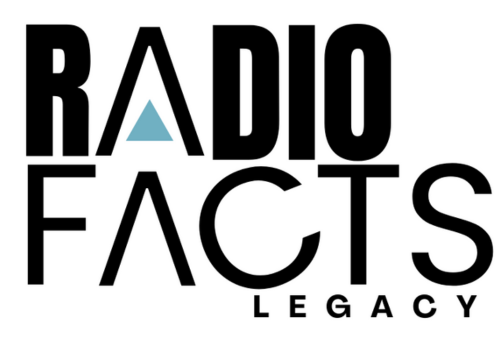Overview of the Legal Battle
In a significant ruling, a Los Angeles court has denied Katherine Jackson’s appeal to block the $600 million sale of half of Michael Jackson’s music catalog to Sony. Katherine, who has acted as the primary guardian for Michael’s children and conservator of their affairs, contended that the estate’s assets should remain within the family. However, the court ruled in favor of the estate’s co-executors, affirming their authority to manage and sell estate assets as outlined in Michael Jackson’s will.

Court Ruling: The Estate’s Co-Executors Prevail
The court’s decision underscores the extensive powers granted to the co-executors of Michael Jackson’s estate. According to the will, these co-executors have the authority to make decisions regarding the sale of estate assets, including the lucrative music catalog. The ruling not only dismisses Katherine Jackson’s objections but also sets a precedent that may limit future legal challenges that conflict with the directives of the will.
Katherine’s arguments were deemed inconsistent with Michael Jackson’s intentions, as outlined in his will. This ruling reinforces the co-executors’ ability to navigate complex financial landscapes, enabling them to make decisions that they believe are in the best interest of the estate.
Ongoing Legal Challenges and Estate Distribution Delays
Despite the court ruling, the estate continues to face significant hurdles. The distribution of assets has been delayed due to ongoing disputes with the IRS, which have complicated the financial landscape for Michael Jackson’s beneficiaries. Legal challenges have also arisen from allegations of financial mismanagement and disputes with former business associates, further complicating the estate’s distribution process.
As of January 2025, these legal issues remain unresolved, leaving Michael Jackson’s children and various charities awaiting their rightful distributions. The estate’s complexity continues to grow, with each new challenge adding layers to an already intricate situation.
Concerns About Michael Jackson’s Legacy
The sale of Michael Jackson’s music catalog to Sony has sparked a broader conversation about the future of his legacy. Fans and critics alike have expressed concerns that such a sale could dilute the value of his music and potentially impact his artistic legacy. The worry is that commercial interests may overshadow the cultural significance of Jackson’s work, which has influenced generations of artists and shaped the music industry.
In recent years, there has been a resurgence of interest in Jackson’s music, driven in part by documentaries and biopics that explore his life and career. This renewed interest highlights the need for careful stewardship of his artistic legacy, especially as the estate navigates the complexities of modern music distribution and rights management.
The Future of the Michael Jackson Estate
Looking ahead, the resolution of the IRS disputes and other legal matters will be critical in determining the ultimate fate of Michael Jackson’s estate. If the estate can successfully navigate these challenges, it may lead to significant distributions to his beneficiaries, including his children and various charitable organizations that Jackson supported during his lifetime.
As the estate continues to grapple with these issues, the co-executors are faced with the challenge of balancing financial decisions with the need to preserve Michael Jackson’s legacy. The music catalog, which includes timeless hits like “Billie Jean,” “Beat It,” and “Thriller,” remains an invaluable asset that requires thoughtful management to ensure its continued relevance and appreciation.
Michael Jackson: A Lasting Cultural Icon
Michael Joseph Jackson, born on August 29, 1958, in Gary, Indiana, remains one of the most influential figures in music history. Rising to fame as the lead singer of the Jackson 5, he later achieved unprecedented success as a solo artist, with “Thriller” becoming the best-selling album of all time. His innovative music videos and iconic dance moves have left an indelible mark on popular culture.
Despite his immense success, Jackson’s life was marred by personal struggles, including health issues and allegations of misconduct. His untimely death on June 25, 2009, at the age of 50, was ruled an accidental overdose, leaving a void in the music industry and among his fans.
In the years since his passing, Jackson’s legacy has continued to be celebrated and scrutinized. His music remains a staple in pop culture, influencing countless artists and genres. The ongoing legal battles surrounding his estate reflect the complexities of managing a legacy that is both cherished and controversial.
Conclusion: Navigating a Complex Legacy
As we enter 2025, the future of Michael Jackson’s estate remains uncertain, but the recent court ruling has provided some clarity regarding the co-executors’ authority. The ongoing legal challenges highlight the complexities of managing a high-profile estate, particularly one with as much cultural significance as Jackson’s.
The outcome of these disputes will not only affect the financial well-being of Jackson’s beneficiaries but will also play a crucial role in shaping the narrative of his legacy for generations to come. As fans and critics continue to engage with his music and life story, the need for responsible stewardship of his artistic contributions has never been more critical.







The first big photo is not Katherine Jackson. MJ’s real legal name is Michael Joe Jackson not Joseph proving ALL DEATH DOCUMENTS are in the wrong name which is against the rules of the Department of Public Health and CDC.
Learn more http://Www.michaeljacksoninsider.com
It’s a generated image for her